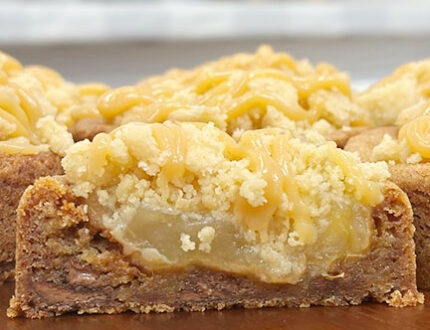Baking has always carried a kind of magic that’s hard to put into words. This post will explain just how How Baking Becomes A Lifeline For Women Rebuilding After Eating Disorder Treatment. The alchemy of flour, sugar, eggs, and butter coming together in a warm oven can feel like both science and poetry. For many women who’ve completed eating disorder treatment, that same act of whisking and folding takes on a deeper role. It’s not just about dessert anymore—it’s about grounding, reclaiming joy in food, and restoring a sense of calm that was once hijacked by anxiety.
Rediscovering Food As A Friend
During treatment, women often spend time untangling food from fear. But once the structured support is behind them, there’s a quieter work that begins—learning to live in a body and a kitchen without dread. Baking provides a safe middle ground. Recipes come with rules, and following them can help women feel in control without leaning back into harmful patterns. The structure isn’t about restriction but about creativity and precision that ends in something beautiful and nourishing. It shifts the spotlight from calorie counts to the colors of ripe peaches in a tart or the scent of vanilla filling a room. That kind of sensory engagement helps rewire the way food is experienced—no longer as an enemy, but as an ally.
The Grounding Rhythm Of Baking
There’s something soothing about the step-by-step pace of baking. You sift, you stir, you fold, you wait. The rhythm mirrors meditation in its own way, giving space for thoughts to soften and the nervous system to settle. For women re-entering life after treatment, having an anchor like this can be immensely powerful. Even the act of learning to decorate a cake becomes less about perfection and more about play—frosting swirls don’t need to be magazine-worthy to feel like a triumph. Every cupcake iced is a small reminder that progress comes in layers, sometimes messy but always worth savoring.
Rebuilding Community Around The Oven
Food connects people, and baking tends to draw others in like moths to a flame. Women who’ve walked through the intense process of healing often find that reestablishing social bonds is just as important as the personal work. Bringing cookies to a book club, showing up to a friend’s birthday with homemade brownies, or teaching a child how to measure flour creates ties that don’t revolve around appearance or performance. It’s an act of giving, but it’s also a way of being present in everyday life. Sharing baked goods creates conversations that aren’t about recovery at all—they’re about laughter, taste, and togetherness. That normalcy is healing in its own right.
Bridging Therapy And Everyday Life
Stepping down from residential eating disorder treatment into everyday routines can feel like leaving a cocoon. Suddenly, women have to integrate lessons learned in therapy into real-world kitchens and grocery aisles. Baking eases that transition. It carries therapeutic echoes—measured steps, mindful attention—but roots them in something tangible and practical. It doesn’t feel like homework, but it reinforces many of the same lessons: patience, balance, and the ability to see food as more than numbers. For some women, the oven becomes a continuation of treatment in disguise, a softer extension of care that meets them in ordinary life.
The Confidence That Builds With Every Batch
There’s no denying that baking builds confidence in quiet ways. When a souffle rises or a pie crust holds its shape, it feels like a win that belongs fully to the baker. Women who’ve struggled with self-trust often rediscover it here, recipe by recipe. Even failures have value—they remind us that imperfection is survivable, and that trying again is part of the joy. Over time, this resilience learned in the kitchen can spill into other corners of life. Mistakes don’t carry the same sting, and the ability to keep moving forward becomes second nature.
Finding Joy Beyond Recovery
Perhaps the most beautiful part of baking after treatment is how it helps women shift focus away from recovery as an identity. Recovery is important, but it’s not the whole story. When a woman pulls a tray of cookies from the oven and shares them with friends, she’s simply a baker, a host, a woman enjoying her life. That’s a powerful reframe—food is no longer tied to a medical history, but to pleasure, creativity, and connection. Over time, baking becomes less about grounding and more about living fully, without fear standing at the counter.
Closing Note: A Sweet Reclamation
For women who’ve put in the work of treatment, baking is more than a hobby. It’s a reclamation of what was once fraught. It turns the kitchen into a place of trust, creativity, and connection. Every loaf of bread, every batch of muffins, every cake iced with unsteady hands tells the same story: food can be joyful again, and life can be savored in layers far beyond what’s plated.


